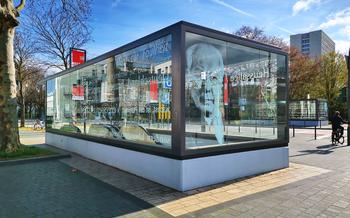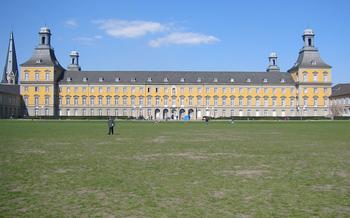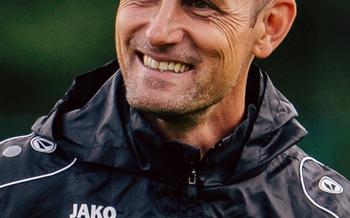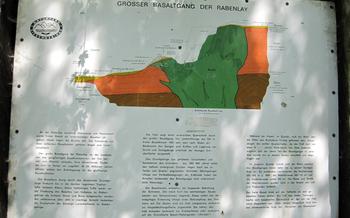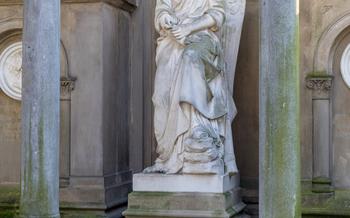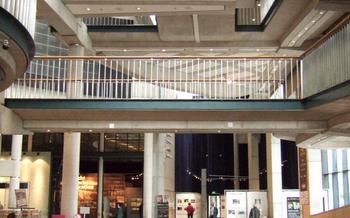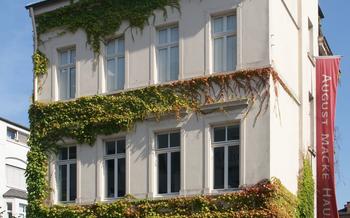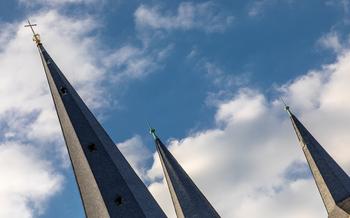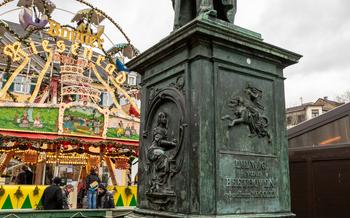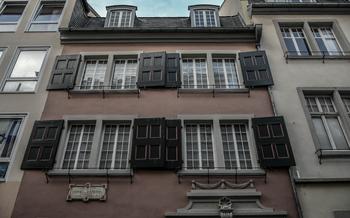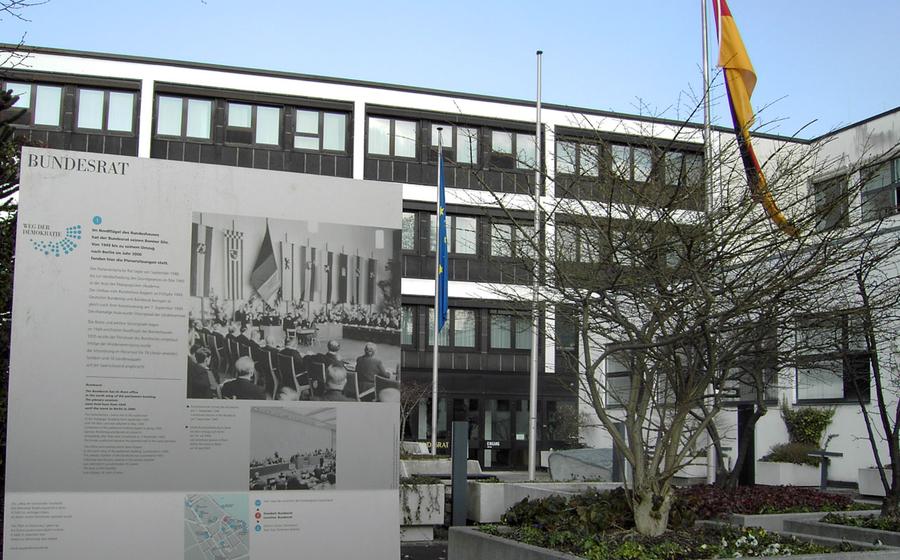
Path of Democracy
- The Path of Democracy: A Journey Through German History
- Bundeskunsthalle: The Federal Art and Exhibition Hall
- Bundeshaus: The German Parliament Building
- Villa Hammerschmidt: The Former Residence of the German President
- Friedrich-Ebert-Allee: The Boulevard of Democracy
- Post Tower: The Tallest Building in Bonn
- Rheinaue Park: The Rhine Meadow Park
- Bundesrechnungshof: The Federal Court of Auditors
- Bundeskartellamt: The Federal Cartel Office
- Alexander Koenig Museum: The Zoological Research Museum Alexander Koenig
- August Macke Haus: The Museum of Expressionist Art
- Insider Tip: Bonn's Museum Mile
The Path of Democracy: A Journey Through German History
Bonn, once the capital of West Germany, is a city steeped in history, and nowhere is this more evident than on the Path of Democracy.
This outdoor trail winds its way through the city center, connecting some of Bonn's most significant historical landmarks and institutions. Along the way, you'll learn about the city's role in German history, from its days as the birthplace of the Federal Republic of Germany to its current status as a center of international diplomacy.
The Path of Democracy is a self-guided tour, but guided tours are also available.
The trail is well-marked, and you'll find plenty of information panels along the way. You can start the tour at any point, but most people begin at the Haus der Geschichte (House of History). From there, you can follow the path to the Bundeskunsthalle (Federal Art and Exhibition Hall), the Bundeshaus (German Parliament Building), and the Villa Hammerschmidt (the former residence of the German President).
The Path of Democracy is a great way to learn about German history and culture.
It's also a beautiful walk, and you'll see some of Bonn's most famous landmarks along the way. Whether you're a history buff or just looking for a nice stroll, the Path of Democracy is a must-see in Bonn.
Bundeskunsthalle: The Federal Art and Exhibition Hall
Bonn's vibrant arts scene is further enriched by the Bundeskunsthalle, a world-renowned exhibition space dedicated to showcasing contemporary art from around the globe. Its striking architecture, designed by Oswald Mathias Ungers, is a testament to the city's commitment to modernism and innovation.
Inside, visitors are treated to a diverse array of exhibitions, ranging from rotating displays of modern and classical art to thought-provoking contemporary installations. The Bundeskunsthalle's curators have a keen eye for identifying emerging talent, and the exhibitions often feature the latest works from up-and-coming artists alongside established masters.
Beyond its exhibitions, the Bundeskunsthalle also hosts a variety of special events, concerts, and performances. These events provide a platform for artists to engage with the public and showcase their work in new and exciting ways. The museum also features a well-stocked museum shop and a charming café, making it an ideal destination for a leisurely afternoon of art appreciation.
Bundeshaus: The German Parliament Building
The Bundeshaus, or the German Parliament Building, is a striking landmark in Bonn and a symbol of German democracy. Completed in 1992, this impressive structure serves as the seat of the German Bundestag (Parliament), the highest legislative body in the country. Guided tours of the Bundeshaus offer visitors a glimpse into the inner workings of German politics and a chance to witness debates and discussions that shape the nation's future.
The tours take visitors through the plenary chamber, where members of parliament gather for sessions, as well as other important areas of the building. Visitors can learn about the history and significance of the Bundeshaus, its architectural features, and the role it plays in German democracy. The highlight of the tour is the opportunity to ascend to the rooftop terrace, which offers breathtaking panoramic views of Bonn and the surrounding area.
The Bundeshaus also features a visitor center and an information desk, where visitors can obtain brochures, maps, and other materials about the parliament and its work. Whether you're a history buff, a political enthusiast, or simply curious about German democracy, a visit to the Bundeshaus is an enriching and informative experience.
Villa Hammerschmidt: The Former Residence of the German President
Villa Hammerschmidt, situated in the picturesque district of Bad Godesberg, holds a significant place in German history as the former residence of the German President. This grand villa, built in the early 20th century, exudes an aura of elegance and architectural splendor. Its neoclassical façade, adorned with intricate details and surrounded by lush gardens, reflects the grandeur of its past.
Guided tours of the villa offer visitors a glimpse into the lives of former German presidents, showcasing the opulent interiors, stately reception rooms, and private apartments. Each room tells a story, from the grand ballroom where official receptions were held to the intimate study where presidents contemplated matters of state.
Today, Villa Hammerschmidt serves as a guest house for foreign dignitaries visiting Bonn. Its historic significance and architectural charm make it a popular destination for those interested in German history and culture. The villa's serene gardens, open to the public, provide a tranquil oasis amidst the urban landscape.
Insider Tip: - Guided tours of Villa Hammerschmidt are available in German and English. - Reservations are required for groups of 10 or more. - The villa is closed to the public on weekends and holidays.
Friedrich-Ebert-Allee: The Boulevard of Democracy
Friedrich-Ebert-Allee, named after the first democratically elected President of Germany, is a vibrant boulevard in Bonn that holds immense historical significance. It is considered the "Boulevard of Democracy" due to its proximity to numerous government buildings, embassies, and international organizations.
As you stroll along Friedrich-Ebert-Allee, you will encounter imposing structures that house various ministries, including the Federal Foreign Office, the Federal Ministry of Education and Research, and the Federal Ministry for Economic Cooperation and Development. These buildings, with their distinctive architecture, stand as testaments to Germany's commitment to democracy and international cooperation.
Interspersed among the government buildings are embassies representing nations from across the globe. The presence of these diplomatic missions adds a cosmopolitan flair to the boulevard, reflecting Bonn's role as a center of international diplomacy.
As you continue your walk, you will notice monuments and sculptures that commemorate key events and individuals in German history. The "Monument to Freedom and Unity" stands as a reminder of the struggle for German reunification, while the "Beethoven Monument" pays homage to the city's most famous son, Ludwig van Beethoven. These monuments serve as poignant reminders of Bonn's rich history and its contributions to German culture and politics.
Along the boulevard, you will also find a variety of cafés, restaurants, and shops, offering a delightful respite from your explorations. Enjoy a leisurely lunch at one of the outdoor cafés, savoring the vibrant atmosphere of Friedrich-Ebert-Allee.
Whether you are interested in history, architecture, or simply soaking up the atmosphere of a city steeped in democracy and internationalism, Friedrich-Ebert-Allee is a must-visit destination in Bonn.
Post Tower: The Tallest Building in Bonn
A Landmark with Panoramic Views and Telecommunications History
The Post Tower, with its distinctive red and white stripes, is an iconic landmark in Bonn. This 162-meter-high telecommunications tower offers breathtaking panoramic views of the city and the surrounding region from its observation deck. Visitors can enjoy a meal or a drink at the restaurant or café at the top of the tower while taking in the stunning scenery.
In addition to its observation deck, the Post Tower also houses exhibitions and events related to telecommunications and media. Visitors can learn about the history and development of telecommunications in Germany and explore interactive displays on various aspects of media and communication. Guided tours of the tower are available, providing insights into the tower's architecture and its role in telecommunications.
The Post Tower is a symbol of Bonn's modern and innovative spirit, showcasing the city's commitment to technology and communication. Whether you're interested in history, architecture, or simply want to enjoy a unique view of Bonn, the Post Tower is a must-visit attraction.
Rheinaue Park: The Rhine Meadow Park
Situated on the banks of the Rhine River, the Rheinaue Park is a sprawling green oasis that offers a tranquil escape from the city's hustle and bustle. With its lush meadows, serene lakes, and meticulously landscaped gardens, the park is a popular destination for locals and tourists alike.
Covering an area of over 160 hectares, the Rheinaue Park boasts an extensive network of walking paths, cycling trails, and playgrounds, making it an ideal spot for outdoor activities. Visitors can take a leisurely stroll along the riverbank, embark on a scenic bike ride, or let the kids run free in one of the many playgrounds.
In addition to its natural beauty, the Rheinaue Park is also home to a variety of cultural attractions. The park's botanical garden showcases a diverse collection of plants from around the world, while the rose garden features over 10,000 roses in bloom from May to October. The park also hosts a variety of concerts, festivals, and other events throughout the year, making it a vibrant cultural hub for the city of Bonn.
Whether you're seeking a peaceful retreat, an active day out, or a cultural experience, the Rheinaue Park has something to offer everyone. With its stunning scenery, abundant amenities, and convenient location, it's no wonder that this park is one of Bonn's most beloved green spaces.
Bundesrechnungshof: The Federal Court of Auditors
The Bundesrechnungshof, or Federal Court of Auditors, is an independent institution responsible for financial oversight in Germany. It audits the accounts of the federal government, including all ministries, agencies, and public enterprises. The court also reviews the efficiency and effectiveness of public spending.
The Bundesrechnungshof is headed by a president and six vice presidents, who are appointed by the Bundestag (German Parliament) for a term of six years. The court has a staff of over 400 auditors, who conduct audits on a wide range of topics, including financial management, procurement, and compliance with laws and regulations.
The Bundesrechnungshof's audit reports are published on its website and are available to the public. The court's findings can have a significant impact on government policy and spending. For example, in recent years, the court has criticized the government for its handling of the COVID-19 pandemic and for its plans to build a new nuclear waste repository.
Visitors to Bonn can take a guided tour of the Bundesrechnungshof building, which was completed in 1950. The tour includes a visit to the court's plenary chamber, where the judges meet to discuss and decide on audit reports. Visitors can also learn about the court's history and its role in the German financial system.
The Bundesrechnungshof is located at Adenauerallee 139-141 in Bonn. Guided tours are available in German and English and can be booked in advance on the court's website.
Bundeskartellamt: The Federal Cartel Office
The Bundeskartellamt (Federal Cartel Office) is a German government agency responsible for enforcing competition law and preventing anti-competitive practices. It is located in Bonn and plays a crucial role in ensuring fair competition and protecting consumers in the German market.
Visitors to Bonn can take guided tours of the Bundeskartellamt building to learn about the work of the office and its significance in maintaining a level playing field for businesses. The tours provide insights into the legal framework of competition law, the investigative processes, and the various tools used by the Bundeskartellamt to promote competition.
In addition to the guided tours, the Bundeskartellamt offers exhibitions on competition policy and antitrust law. These exhibitions explain complex legal concepts in an accessible and engaging manner, making them suitable for visitors of all backgrounds. Visitors can learn about the history of competition law, the different types of anti-competitive practices, and the consequences of violating competition laws.
Furthermore, the Bundeskartellamt has a library and information center that provides access to a wide range of resources on competition law and policy. Researchers, students, and members of the public can find books, journals, articles, and other materials related to competition law and economics. The library staff is available to assist visitors with their research needs.
Alexander Koenig Museum: The Zoological Research Museum Alexander Koenig
Bonn is home to the renowned Alexander Koenig Museum, a natural history museum with a specific focus on zoology. Founded in 1912, this esteemed institution is dedicated to preserving and showcasing the incredible diversity of animal life on Earth. Within its impressive walls, visitors can explore captivating exhibits that delve into the fascinating world of animal evolution, conservation, and biodiversity.
The museum boasts an extensive collection of specimens from across the globe, representing the rich tapestry of Earth's ecosystems. From intricate insects to majestic mammals, the museum's displays offer a comprehensive journey through the animal kingdom. Visitors can marvel at the intricate beauty of butterflies, learn about the diverse adaptations of reptiles, and come face-to-face with life-sized replicas of prehistoric creatures.
In addition to its permanent exhibits, the Alexander Koenig Museum frequently hosts temporary exhibitions that showcase the latest research and discoveries in the field of zoology. These exhibitions often explore specific themes or regions, providing visitors with an in-depth look at the unique characteristics and challenges facing different animal species.
The museum's commitment to education and research is evident in its extensive library and research center. Here, scientists and scholars from around the world can access a wealth of resources and collaborate on groundbreaking research projects.
Whether you're a budding zoologist, a nature enthusiast, or simply someone who appreciates the wonders of the animal kingdom, the Alexander Koenig Museum is a must-visit destination in Bonn. Its captivating exhibits, educational programs, and commitment to conservation make it a truly enriching and unforgettable experience.
August Macke Haus: The Museum of Expressionist Art
The August Macke Haus is a museum dedicated to the life and work of the expressionist painter August Macke. Born in Bonn in 1887, Macke was a leading figure in the German Expressionist movement, known for his vibrant colors and bold compositions. The museum is housed in a beautiful villa that was once Macke's home, and it offers a comprehensive overview of his career.
The permanent exhibition at the August Macke Haus features a large collection of Macke's paintings, drawings, and watercolors. Visitors can trace the development of his style from his early Impressionist works to his mature Expressionist masterpieces. The museum also hosts temporary exhibitions of other expressionist artists, as well as educational programs and workshops.
For those interested in learning more about August Macke and the Expressionist movement, the August Macke Haus is a must-visit. The museum's collection is one of the most comprehensive in the world, and its knowledgeable staff is always happy to answer questions.
Insider tip: The August Macke Haus is located on the Bonn Museum Mile, a concentration of museums within walking distance of each other. Take advantage of the museum mile's special events and promotions, such as free admission on the first Sunday of every month.
Insider Tip: Bonn's Museum Mile
Bonn is home to a remarkable concentration of museums within a short walking distance, forming the so-called "Museum Mile". This cultural promenade is located in the heart of the city and offers an unparalleled opportunity to explore a wide range of artistic and historical treasures.
The Museum Mile stretches along the Bundeskanzlerplatz and Friedrich-Ebert-Allee, connecting 18 museums and cultural institutions. Among the highlights are the Haus der Geschichte, the Bundeskunsthalle, the Kunstmuseum Bonn, the August Macke Haus, and the Beethoven-Haus. These institutions cover a diverse range of topics, from German history and contemporary art to music, natural history, and expressionism.
One of the unique features of the Museum Mile is the "Museum Pass Bonn", which grants visitors access to all participating museums for a single price. This pass is an excellent way to save money and enjoy the flexibility of exploring the museums at your own pace.
Throughout the year, the Museum Mile hosts various special events, exhibitions, and promotions. These events provide an opportunity to experience the museums in a different light, with guided tours, workshops, concerts, and other activities.
To make the most of your visit to the Museum Mile, plan your itinerary in advance and allow enough time to explore each museum thoroughly. Consider starting your visit at the Haus der Geschichte to gain an overview of German history, and then explore the other museums based on your interests.
The Museum Mile is easily accessible by public transportation, with several bus and tram lines stopping nearby. There are also ample parking options in the area.
Whether you are an art enthusiast, a history buff, or simply looking for a unique cultural experience, Bonn's Museum Mile has something to offer everyone.
